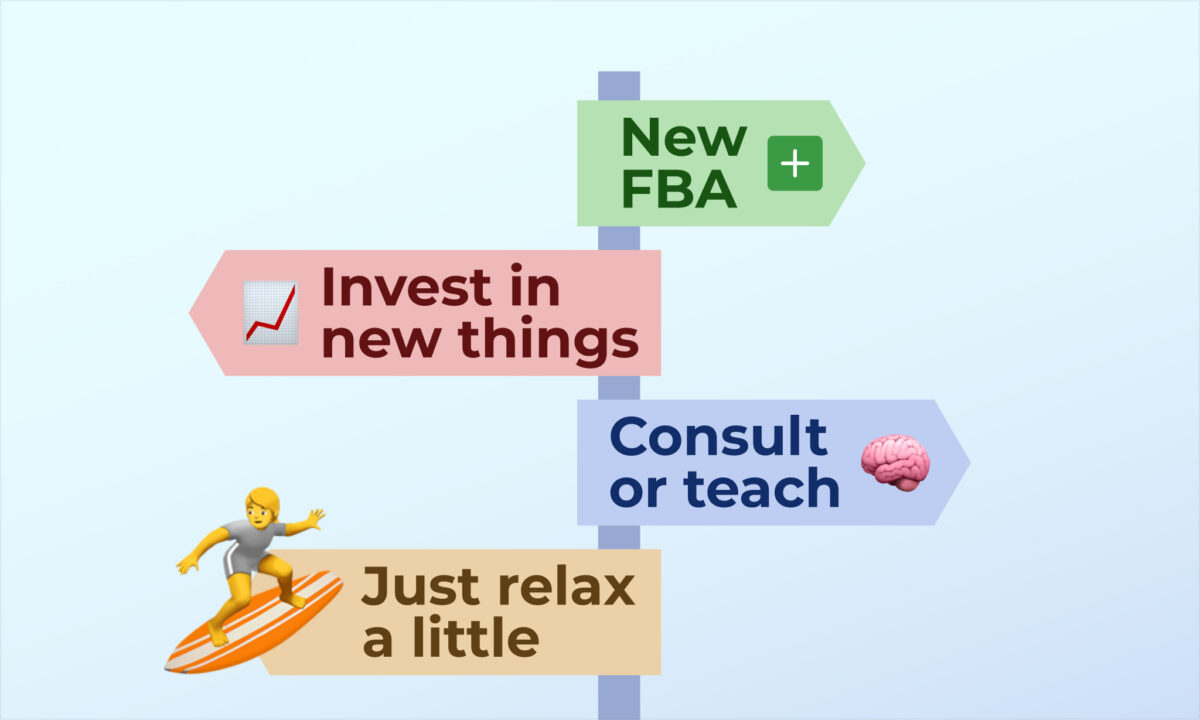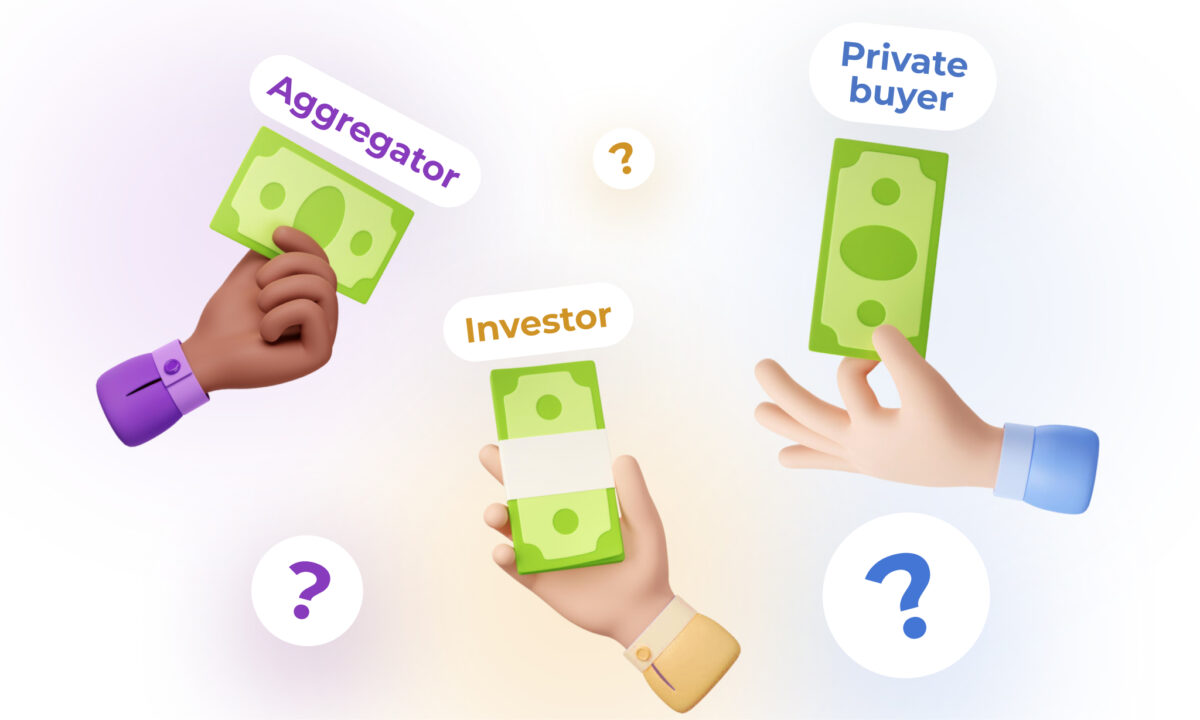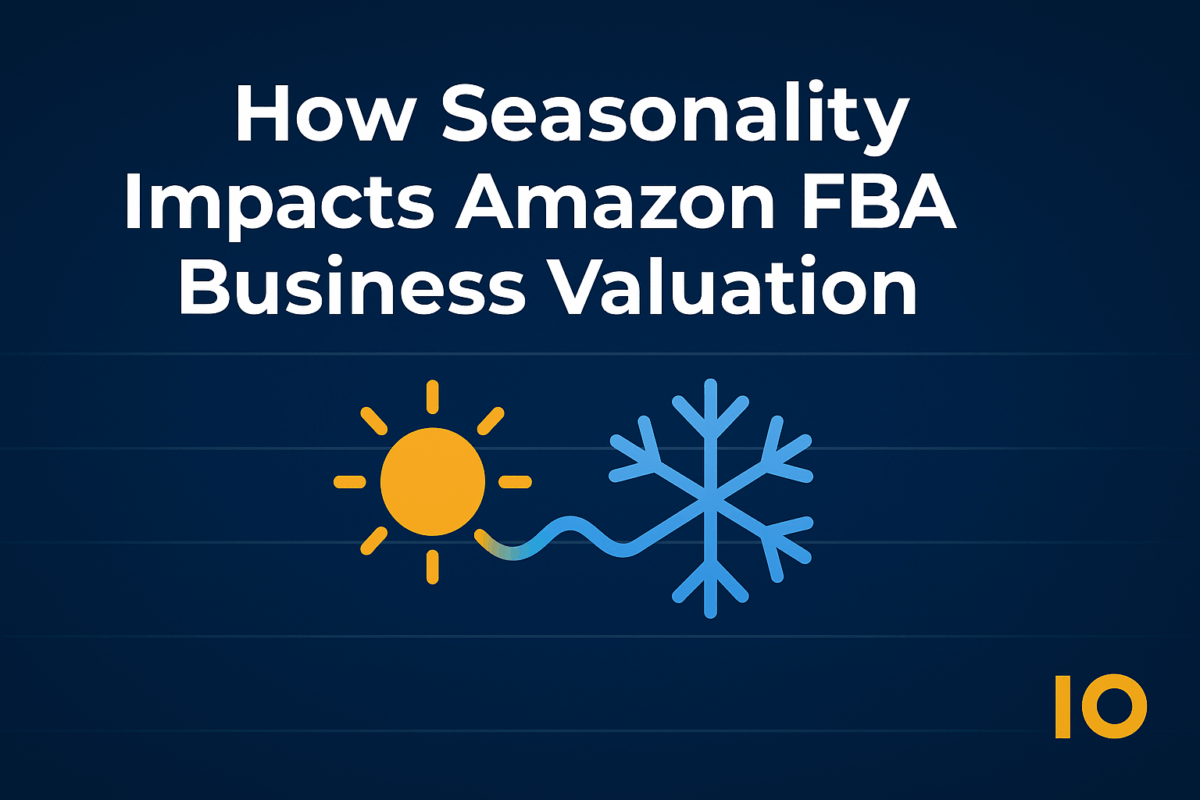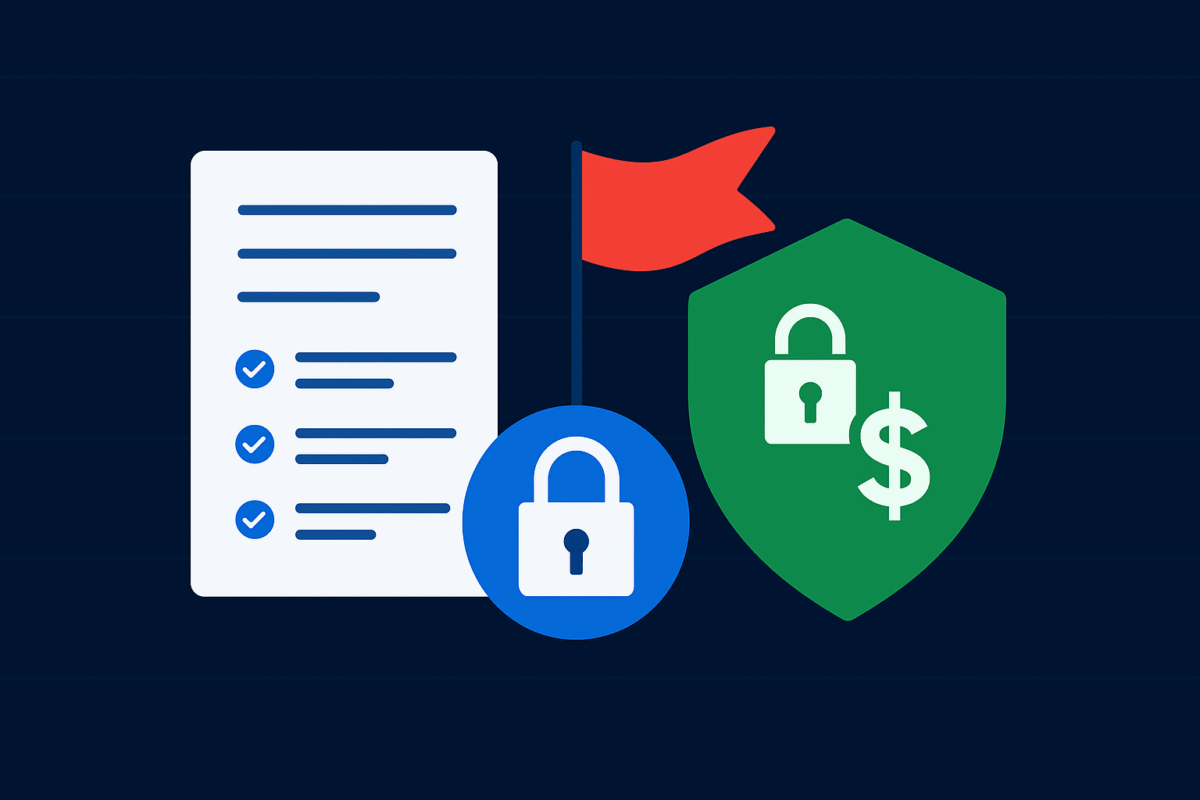Selling your Amazon FBA business is a major milestone – congratulations! But once the deal is closed and the funds hit your account, you might find yourself asking: “Now what?” Life after an exit can feel both exciting and uncertain. The good news is that you have a world of opportunities ahead. By understanding common post-sale paths and planning wisely, you can make the most of your hard-earned success. In this guide, we’ll explore typical scenarios for Amazon sellers after a sale, share real examples of entrepreneurs who navigated this transition, discuss financial and tax strategies, outline a checklist for choosing your next adventure, and highlight pitfalls to avoid. Let’s dive in.
Life After the Exit: Common Paths for Ex-Amazon Sellers
Many Amazon entrepreneurs find that selling their business opens up a new chapter in their professional lives. Here are some typical post-exit paths that FBA sellers pursue:
- Launch a New Brand or Business: Entrepreneurs often have the “builder” mindset – you might already be itching to start another brand or venture. Many ex-sellers take the lessons and capital from their first exit and launch a new e-commerce brand (sometimes in a different niche or even outside of Amazon). For example, one 7-figure Amazon seller sold his skincare brand and, after a brief break, began planning multiple new brands using his proven playbook. Starting fresh can be energizing, but remember to leverage your past experience and avoid mistakes you learned the hard way. (Also, be mindful of any non-compete agreements from your sale before diving into a similar business too soon!)
- Invest in Other Businesses or Assets: After a big payout, some sellers switch roles from operator to investor. This could mean investing in other Amazon FBA businesses (becoming an angel investor or even starting an aggregator fund), or diversifying into real estate, stocks, or startups. The idea is to put your money to work. One notable example is an Amazon entrepreneur who sold his brand for eight figures and then started an investment fund to back other e-commerce startups. Others buy equity in promising brands or lend their expertise (and cash) as silent partners. Investing can grow your wealth long-term, but it requires discipline – do thorough due diligence just as a buyer did when acquiring your business.
- Advisory and Consulting Roles: Having built and sold a successful Amazon business, you possess valuable knowledge. It’s common for ex-sellers to monetize that expertise by becoming consultants, advisors, or coaches in the e-commerce space. You might help other Amazon sellers scale and exit their businesses, offer freelance consulting on supply chain or PPC, or even create a course or podcast. For instance, Kellianne Fedio, who sold her seven-figure FBA brand, transitioned into an Amazon strategist and exit planning advisor – guiding other sellers on how to replicate her success. This path can be highly rewarding: you stay connected to the industry, build your personal brand, and help others succeed, all without the day-to-day stress of running an Amazon store.
- Take a Break (or “Mini-Retirement”): Let’s not forget, you’ve just completed a marathon of entrepreneurship – a break might be well deserved! Some sellers choose to step back, travel, or spend time with family after an exit. Whether it’s a few months or a year off, taking time to decompress and reflect can help recharge your batteries. One Amazon seller did exactly this: after selling his business, he took a year off to travel the world and focus on his health. Only later did he decide on his next venture. There’s nothing wrong with pausing. In fact, a short sabbatical can give you perspective on what you truly want to do next, so you return to business with fresh motivation and clarity.
Of course, these paths aren’t mutually exclusive – you might do a bit of each. For example, you could take a few months off, then start a new brand and do consulting on the side. Or you might invest most of your money for passive income while dabbling in a new project for fun. The key is to consciously decide how you want to spend your post-exit time and capital, rather than drifting aimlessly. Next, let’s look at some real-life examples of sellers who navigated this transition successfully.
Post-Exit Journeys: Real Examples for Inspiration
Sometimes the best way to envision your future after an exit is to see what others have done. Here are a few brief examples of Amazon FBA sellers who sold their businesses and their “next moves”:
- Tom Wang (E-Commerce Entrepreneur) – Tom built a 7-figure skincare brand on Amazon and sold it in 2020. After the sale, he bought his dream house and took some time to recover from the hectic exit process. He realized he still loved e-commerce, so he transitioned into teaching others through an FBA course while planning new brands to launch. His post-exit phase included a lot of self-reflection; he emphasizes setting new goals beyond just making money. Tom’s journey shows that an exit can be a springboard to reinvent yourself – in his case, from seller to educator and multi-brand owner – all while prioritizing personal well-being.
- Kellianne Fedio (Brand Builder Turned Advisor) – Kellianne founded, grew, and sold a boutique kitchen goods brand on Amazon for seven figures. Instead of jumping into a new product line, she leveraged her experience to help other sellers. She became an exit advisor and Amazon consultant, eventually co-hosting a podcast to educate entrepreneurs on selling their businesses. Kellianne chose to focus on service over starting another physical product brand, carving out a niche as a thought leader. Her story illustrates that if you’re passionate about sharing knowledge, you can turn your hard-earned expertise into a thriving consulting career after your exit.
- Ben Leonard (From Exit to New Ventures) – Ben built a fitness equipment brand (Beast Gear) and sold it to an aggregator in 2019. After exiting, he co-founded his own e-commerce brokerage to help other business owners sell for top dollar, partnering with the accountant who helped on his deal. At the same time, he stayed active in e-commerce by launching new brands outside of Amazon. Ben’s post-sale life became a blend of entrepreneurship and M&A advisory. The sale of his first company didn’t mean retirement – it fueled new projects. His example shows that you can remain an entrepreneur at heart, even as you pivot to helping others with acquisitions.
Each of these sellers took a different route: one went into education and new brands, another into consulting, another into brokerage and new ventures. There’s no single “right” path – only the path that fits your goals and lifestyle. What will your next move be? To decide that, it’s important to take a strategic look at your finances and personal priorities, which we’ll do next.
Smart Money Moves: Financial and Tax Considerations
A business sale often means a life-changing sum of money coming your way. Properly managing that windfall is crucial to secure your future. Here are some strategic-level financial and tax considerations to keep in mind post-exit:
- Pause Before Big Purchases: First, take a deep breath. It’s tempting to celebrate your success with a new sports car or luxury vacation home. Reward yourself – you earned it! – but avoid impulsive spending that can erode your net proceeds fast. Many financial advisors recommend waiting a few months before making any huge lifestyle changes. Let the reality sink in and make a plan for your money before you splurge. You’ll thank yourself later for the restraint.
- Handle Taxes Early: Remember that a portion of your sale proceeds likely belongs to the tax man. Depending on your country and deal structure, you may owe capital gains tax, income tax on earn-outs, or other taxes. A common mistake is forgetting to set aside money for taxes and then getting hit with a massive bill. To avoid this, work with a qualified accountant immediately after selling (if not before) to understand your tax obligations. You might need to pay estimated taxes in advance. It’s wise to park the tax amount in a separate account so you don’t accidentally spend it. Also consider if there are post-sale tax strategies available to you, such as charitable donations, trusts, or retirement account contributions that could offset some tax – a financial planner can guide you here.
- Protect and Diversify Your Wealth: Pre-exit, most of your net worth was probably tied up in one business. Now, suddenly, it’s liquid cash. To preserve and grow this wealth, think like an investor: diversify across different asset classes and risk levels. That means you might allocate some money to conservative investments (e.g. index funds, bonds, or real estate) to provide steady, long-term growth. Another portion could be set aside for higher-risk, higher-reward ventures (like a new startup or angel investments) – but only what you can afford to lose. The goal is not to “bet the farm” all over again on one endeavor. By spreading out your investments, you reduce the risk of a single failure hurting your financial security. Consider seeking advice from a wealth manager who has experience with business owners coming into liquidity; they can help craft an investment plan tailored to your goals.
- Create a Long-Term Financial Plan: Treat the proceeds from your sale as fuel for your future, not just short-term play money. A lump sum can dwindle surprisingly fast without a plan. Sit down and map out both your short-term needs and long-term objectives. For example, how much of the money do you want to keep untouched for retirement or financial independence? Are you planning to fund your children’s education or maybe buy a home? How much will you allocate as “risk capital” for new business ventures? By budgeting it out (even at a high level), you’ll have clarity. Many ex-owners establish a “financial safety net” first – say, enough in low-risk investments to cover their family’s living expenses for X years – before they venture to spend or invest in anything speculative. This ensures that, no matter what, your exit has secured your family’s future.
- Consider Professional Guidance: High-net-worth individuals often rely on a team of advisors, and now you are effectively one of them. It can be wise to assemble your own mini “board of advisors” for your personal finances: this could include an accountant (for tax strategy), a financial planner or wealth advisor, and an attorney (for estate planning, trusts, etc.). For instance, if your sale was very large, you might want to set up trusts or foundations for estate and charitable planning, or ensure you have proper insurance and asset protection in place. Even if your sale was more modest, getting expert input on how to deploy the money tax-efficiently and safely is invaluable. Yes, this comes with some cost, but think of it as an investment in peace of mind. You managed your business with the help of experts; managing your post-exit wealth should be no different.
In short, be intentional with your money. Done right, the proceeds from selling your FBA business can fund not only your next venture, but your life goals – whether that’s early retirement, financial freedom to try new things, or providing for your family. By avoiding rash decisions, planning for taxes, and diversifying, you’ll set a strong foundation for whatever comes next.
Are You Ready for What’s Next? A Readiness Checklist
Before you charge off into a new project (or decide to kick back on a beach indefinitely), it’s important to assess your readiness for the next chapter. Here’s a simple checklist to evaluate where you stand and what path fits you best:
- ✅ Take Stock of Your Skills and Strengths: Start with some self-reflection. What skills did you develop building your Amazon business? Perhaps you became great at product development, supply chain management, Amazon SEO, or marketing. Also consider your soft skills – leadership, resilience, negotiation. List out your key strengths and experiences. This will help you see where you can best apply yourself next. For instance, if your strength is branding and product launches, starting a new brand might play to your wheelhouse. If you excelled at analytics and finance, maybe investing or mentoring appeals to you. Knowing what you’re good at (and what you enjoy doing) will narrow down opportunities that suit you.
- ✅ Identify Your Interests and Passions: Running an FBA business can be all-consuming, and you might have put some personal interests on the back burner. Now you have a chance to align your next move with what genuinely excites you. Ask yourself: What do I love spending time on? It could be a specific industry (maybe the hobby that you never had time for), a cause, or even a desire to learn something new. Your post-exit venture doesn’t have to be in the same niche as your old business. In fact, many entrepreneurs choose something quite different if it aligns more with their passions. If you’ve always loved fitness, maybe you invest in a gym franchise; if tech fascinates you, maybe you build a software tool for e-commerce. Passion can be a guiding compass – it fuels motivation. Marry your skillset with your interests to find a direction that you’ll be excited to jump out of bed for.
- ✅ Gauge Your Risk Tolerance (and Energy Level): Next, consider how much risk – financial and emotional – you are willing to take on at this stage. Some sellers are rejuvenated by a big exit and can’t wait to tackle a brand-new startup, even if it means starting from scratch (high risk, high reward). Others might feel more cautious, valuing stability after experiencing the rollercoaster of a startup. There’s no wrong answer, but be honest with yourself. Now that you have some financial security, do you feel comfortable betting a lot of it on another business? Or would you rather invest smaller portions and keep a solid cushion? Additionally, assess your energy and commitment: building a new company from zero is very different from managing an established one. Do you have the drive to do it all again? If you prefer a lighter workload or more free time now, perhaps a less intensive role (like consulting a few clients or investing passively) is more appropriate. Understanding your risk appetite and desired lifestyle will help you choose between an active new venture, a more passive path, or a balance of both.
- ✅ Study Market Trends and Opportunities: The entrepreneurial landscape is always evolving. It’s worth scanning the horizon for current market trends before deciding on your next move. Are there booming areas in e-commerce or beyond that align with your skills? For example, perhaps you notice a rise in direct-to-consumer brands off Amazon, or growth in a particular product category, or a need for a service that you could provide. Similarly, the Amazon marketplace itself changes – new countries opening up, new advertising tools, etc. If you’re considering starting another FBA brand, research which niches are trending or what new regulations might be coming. If you’re looking to invest, investigate which sectors are expected to grow in the next 5-10 years. Your previous success came from capitalizing on an opportunity; your next one should too. Spend time doing due diligence on the “big picture” of whatever field you’re drawn to. This will give you confidence that your next venture is grounded in real potential, not just a whim.
- ✅ Define Your Goals and “Why”: Last but definitely not least, clarify why you’re doing what you plan to do next. What do you want out of this next phase? Some common goals for ex-founders include: building another big company (perhaps even bigger than last time), achieving a certain level of passive income, enjoying a flexible lifestyle, giving back to the community, or simply the thrill of a new challenge. Your goals might be financial, personal, or a mix of both. Write them down. For example, maybe your goal is, “Within 3 years, start a new brand and grow it to half the size of my last business, but with a better work-life balance.” Or, “Spend at least 6 months traveling and then decide on a business idea that supports my family comfortably but doesn’t consume me like the last one.” There’s immense freedom in life after an exit – defining what success looks like to you now will prevent you from chasing things that don’t truly fulfill you. Use your “why” as a filter for opportunities that come your way.
By walking through this checklist, you’ll have a clearer picture of your readiness and priorities. It’s like creating a personal business plan for you as an entrepreneur, not just for any single business. When you understand your own skills, passions, risk tolerance, awareness of the market, and goals, the choice of next move often becomes much more obvious. And if it doesn’t yet – that’s okay. It simply means you may need more time to reflect or gather information (which is far better than rushing into something unprepared).
Avoiding Common Post-Exit Pitfalls
Stepping into life after a business sale isn’t without its challenges. Many entrepreneurs have stumbled in this transition by making a few classic mistakes. Here are some common post-exit pitfalls Amazon sellers face – and how you can avoid them:
- Pitfall: Going on a Spending Spree – We touched on this earlier, but it’s worth reinforcing. It’s all too easy to let a big wire transfer burn a hole in your pocket. New millionaires sometimes deplete their cash quicker than you’d think, ending up with lots of “toys” and little to show in investments. How to avoid it: Give yourself a celebratory budget (for a car, vacation, or whatever makes you happy) but cap it at a reasonable percentage of your proceeds. For everything else, institute a cooling-off period – say, 90 days – before any major purchase. Often, after a few months, you may realize you don’t really want that second vacation home or fancy supercar. By being mindful, you ensure your hard-won payday sets you up for long-term prosperity, not just short-term indulgences.
- Pitfall: Putting All Your Eggs in One Basket (Again) – Some sellers, fresh off one successful exit, immediately pour all their capital into a single new venture, assuming it will be a repeat victory. While confidence is great, remember that no venture is a sure thing. If that one big new bet fails, you could severely set back your financial gains. How to avoid it: Diversification is your friend. Even if you’re extremely excited about starting a new business, don’t allocate 100% of your funds to it. Spread your risk: maybe invest a portion in the new business, but keep other portions in safer investments or even in reserve. This way, if your new idea takes off slowly or encounters challenges, you have a cushion and other income streams. In practice, treat yourself like an investor: you wouldn’t advise someone else to invest their entire net worth in one stock, so apply the same wisdom to your own money.
- Pitfall: The Post-Sale Identity Crisis – Many entrepreneurs underestimate the emotional impact of selling their business. After the rush of the deal, you might wake up one day with no emails from customers, no team needing your decisions, no fires to put out – and that quiet can feel jarring. Some ex-sellers feel a loss of purpose or even regret (“seller’s remorse”), wondering if they made the right choice. How to avoid it: First, know that it’s normal to experience a sense of letdown or confusion – you poured years of your life into that business, and it likely became part of your identity. To cope, proactively fill that void: channel your energy into something meaningful soon after the sale (it doesn’t have to be another business; it could be family, fitness, travel, or a passion project). One entrepreneur described the silence after selling as “deafening” – he remedied this by taking on a couple of consulting gigs and hobbies to keep himself engaged. Even if you plan to take a break, set some small goals or routines so you have purpose in your days. And remind yourself why you sold: maybe to achieve freedom or reduce stress. Reconnecting with those reasons will help banish regret and let you appreciate the benefits of moving on.
- Pitfall: Jumping Into the Next Venture Too Fast – Entrepreneurs are go-getters by nature. After an exit, you might feel pressure (whether internal or external) to “do something big” with your time and money right away. However, some who rush into a new project quickly later realize they chose the wrong opportunity or weren’t truly ready for the commitment. How to avoid it: It’s perfectly fine – even wise – to take your time. Don’t let fear of missing out drive you into hasty decisions. The months immediately after a sale can be emotionally charged and might cloud your judgment. Give yourself permission to explore ideas, talk to mentors, and vet opportunities thoroughly. If you’re considering multiple paths (say, a new startup vs. joining an investment group), weigh the pros and cons of each against the criteria from your readiness checklist (skills, interests, risk, etc.). Taking a bit of time to make an informed, passion-backed choice can save you from committing to something that isn’t the right fit. Remember, this transition is not a race – it’s more important to get it right than to do it quickly.
- Pitfall: Neglecting Personal and Family Priorities – In the excitement of planning new ventures or managing newfound wealth, some ex-sellers focus solely on business/investment moves and forget to rebalance their personal lives. For instance, you might dive into a new project and inadvertently carry over the same workload and stress as before, leaving family in second place again. Or you might delay addressing personal goals (health, relationships, etc.) because “one more project” came up. How to avoid it: Take advantage of the clean slate to realign with what matters outside of work. If part of your reason for selling was to have more family time or better health, make sure your next steps honor that. Communicate with your loved ones about your plans and get their input – they may have insight into what pace or type of engagement is healthiest for you. Set some non-negotiables for your personal life (e.g., “I’ll have dinner with my family every night now” or “I’ll finally train for that marathon”). Having these personal priorities set will prevent you from inadvertently creating another all-consuming situation. Success after an exit isn’t just about professional achievements – it’s also about improving or maintaining quality of life.
By watching out for these pitfalls, you can avoid turning your dream exit into anything less than the positive life change it should be. In essence: stick to your plan, stay true to your goals, and don’t forget to enjoy the journey. You’ve earned this opportunity – handle it wisely, and it can lead to even greater fulfillment ahead.
Final Thoughts: Exiting your Amazon FBA business is the end of one chapter, but it’s also the beginning of an exciting new one. You now have the flexibility to design your career and life in a way that aligns with your passions, values, and ambitions. Whether you choose to build another brand, invest and diversify, mentor others, or simply savor some well-deserved downtime, the key is to move forward with intention. Take the time to plan and make thoughtful decisions – but don’t be afraid to dream big about what’s possible next. Remember, you’ve already achieved something extraordinary by building and selling a business. With that experience in your back pocket, your next move – whatever it may be – can be just as rewarding. Embrace the freedom and possibilities ahead, stay true to what drives you, and confidently write the next chapter of your entrepreneurial story. Here’s to your success in life after the exit!








